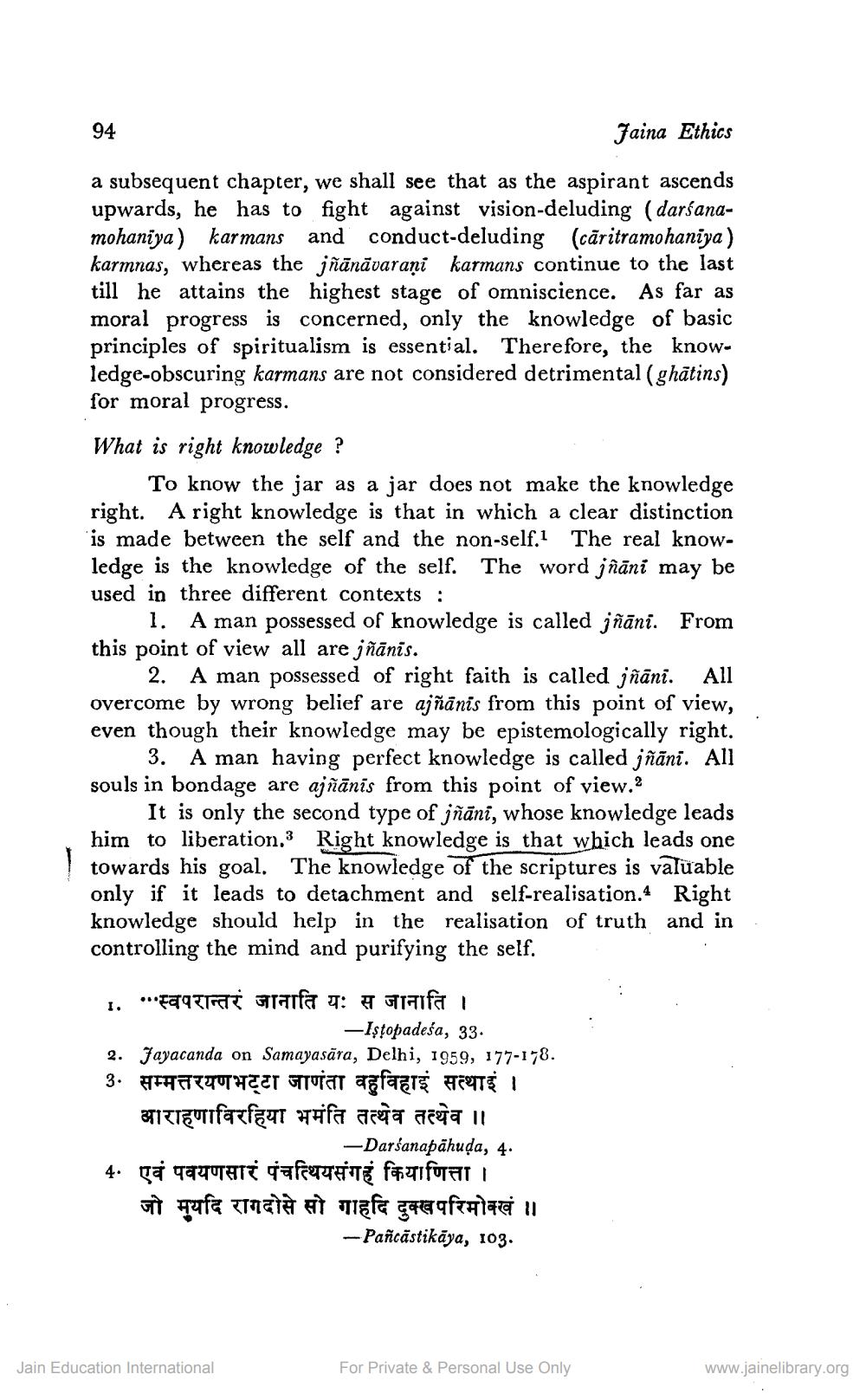________________
94
Jaina Ethics
a subsequent chapter, we shall see that as the aspirant ascends upwards, he has to fight against vision-deluding (darśanamohaniya) karmans and conduct-deluding (caritramohaniya) karmnas, whereas the jñānāvarani karmans continue to the last till he attains the highest stage of omniscience. As far as moral progress is concerned, only the knowledge of basic principles of spiritualism is essential. Therefore, the knowledge-obscuring karmans are not considered detrimental (ghātins) for moral progress.
What is right knowledge ?
To know the jar as a jar does not make the knowledge right. A right knowledge is that in which a clear distinction is made between the self and the non-self.1 The real knowledge is the knowledge of the self. The word jñānī may be used in three different contexts :
1. A man possessed of knowledge is called jñāni. From this point of view all are jñānīs.
2. A man possessed of right faith is called jñānī. All overcome by wrong belief are ajñānis from this point of view, even though their knowledge may be epistemologically right. 3. A man having perfect knowledge is called jñāni. All souls in bondage are ajñānis from this point of view.2
It is only the second type of jñāni, whose knowledge leads him to liberation.3 Right knowledge is that which leads one towards his goal. The knowledge of the scriptures is valuable only if it leads to detachment and self-realisation.4 Right knowledge should help in the realisation of truth and in controlling the mind and purifying the self.
1. ***aqzaż ararfa 9: a arafa |
-Istopadesa, 33.
2. Jayacanda on Samayasara, Delhi, 1959, 177-178. 3. सम्मत्तरयणभट्टा जाणंता वहुविहारं सत्थाई । आराहणाविरहिया भमंति तत्थेव तत्थेव ||
-Darśanapahuḍa, 4.
4. एवं पवयणसारं पंचत्थियसंगहं कियाणित्ता । जो मुयदि रागदोसे सो गाहदि दुक्ख परिमोक्खं ॥ -Pañcastikāya, 103.
Jain Education International
For Private & Personal Use Only
www.jainelibrary.org




